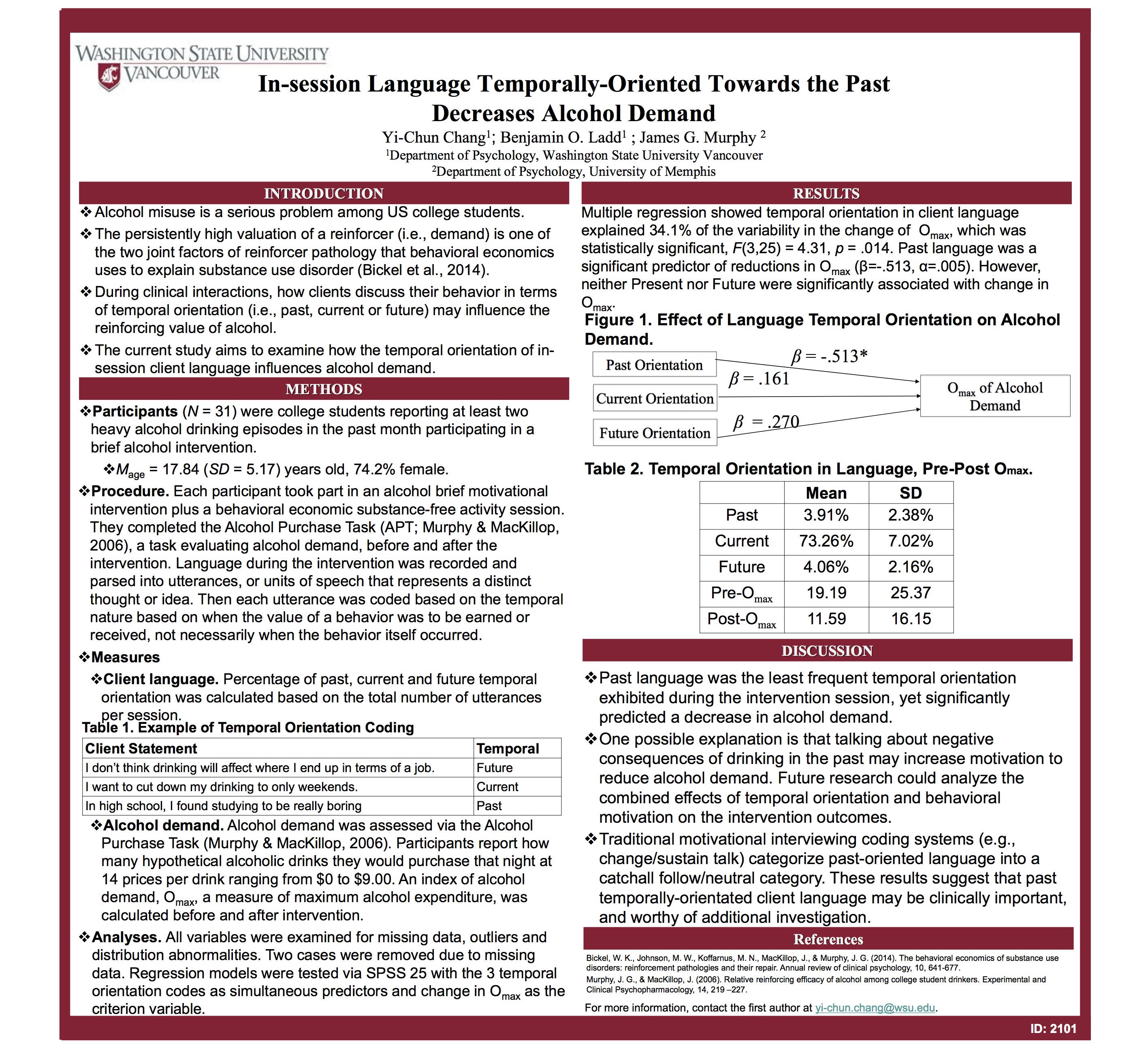In-session Language Temporally-Oriented Towards the Past Decreases Alcohol Demand
Abstract
Objective: The purpose of the current study was to examine how the temporal orientation of in-session client language influences alcohol demand. Method: Participants were 31 college students (74.2% female, mean age = 17.84 years) with at least two heavy alcohol drinking episodes in the past month participating in a brief alcohol intervention. Alcohol demand was assessed using the Alcohol Purchase Task (APT) before and after the intervention, yielding Omax, a measure of maximum alcohol expenditure. In-session language was coded based on whether utterances were oriented towards the past, present or future. Result: The mean of each temporal orientation (Past, Present, Future) was 3.91% (SD=2.38%), 73.26% (SD=7.02%), and 4.06% (SD=2.16%), respectively. Linear regression showed Past language was associated with significant reductions in Omax (β=-.507, α=.005). However, neither Present nor Future were significantly associated with change in Omax. Similar results were found when the three temporal orientations were entered simultaneously into a regression model. Conclusion: Past temporally-oriented language during session can result in significant reductions in alcohol demand among college drinkers. An improved understanding of the relationship between in-session temporal orientation and behavioral outcomes could inform clinical practice and training, which in turn could lead to improved intervention outcomes.
About the Presenter

Yi-Chun Chang
Yi-Chun Chang is a first-year graduate student in Experimental Psychology Ph.D. Program. She is also a research assistant in Dr. Benjamin Ladd’s Promoting and Treating Health Lab. Her research interests focus on understanding decision-making mechanisms underlying addiction and further examining mechanisms of change to promote health behavior via behavioral economics.

